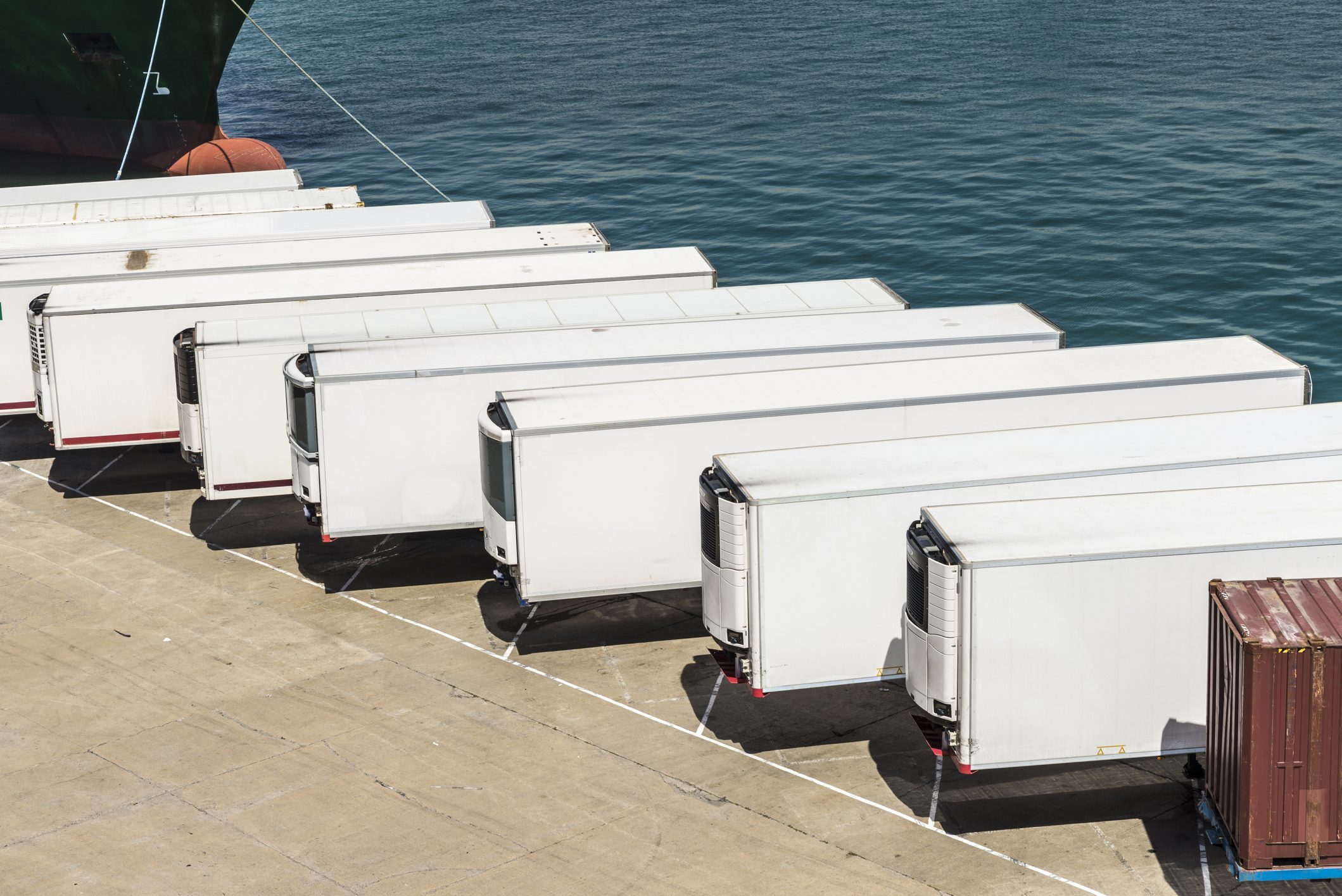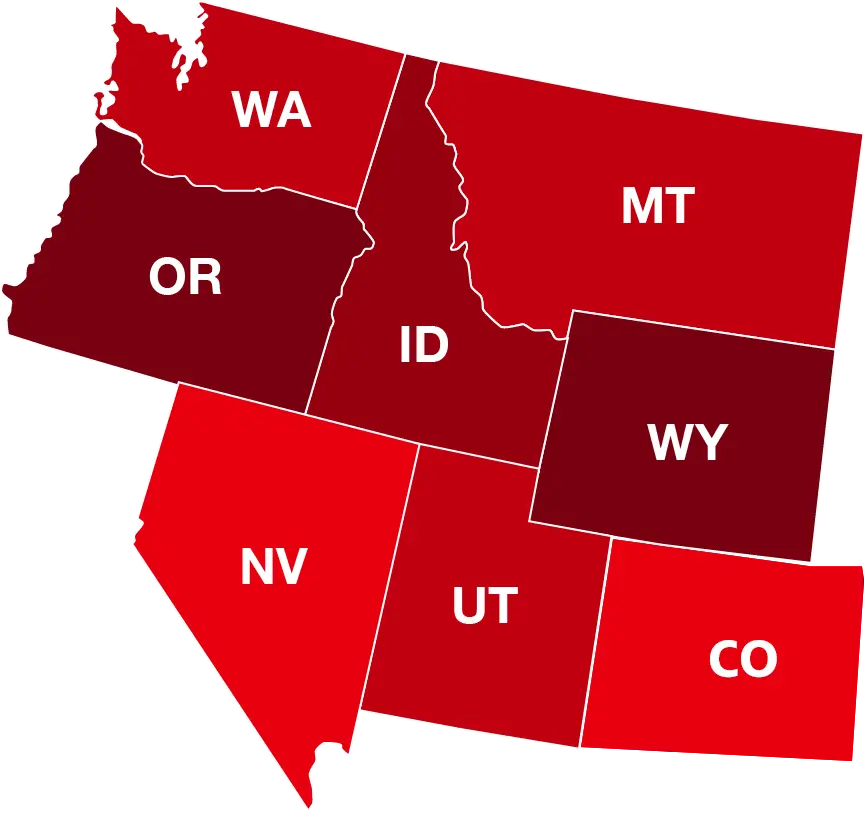Shipping Container Weight: How Much Do Containers Weigh?

When considering shipping cargo, shipping containers are an essential element to be considered. The official weight of the unit will be provided prior to shipping. Different regions have different laws in regards to container weight and size.
The shipping container weight will depend on container type and size. For instance, the average 20-foot shipping container when empty will weigh between 3,970 and 4,850 pounds, compared with a 40-foot container weighing between 8,340 and 9,260 pounds when empty. High cube containers will be heavier than their shorter counterparts. The more height a container has, the heavier the weight.
High cube containers usually have the same length and breadth as a 40ft standard container but have a height difference of one foot, which adds to the storage capacity but also to the weight.
Why Is Weighing a Shipping Container Important?
Weighing a container is critical in optimizing the payload per the dimensions. With an exact weight in mind, you will be better able to comply with regulatory guidelines as well as government transport regulations. Weight limits play an important role in export and inland movement of all types of cargo units.
You will want to avoid unbalanced or overloaded shipping containers, which are risky additions for container ships, not to mention road safety and transport of the goods themselves. When shipping overseas, shippers must submit VGM (Verified Gross Mass) of their container prior to getting loaded onto the ship for export, as per the IMO (International Maritime Organization).
These rules are in place to cut back on accidents as a result of overweight shipping containers. Safety is of the utmost concern here.
Containers must be accurately weighed and loads must be optimized to avoid incurring penalties and fines in the future. When transporting goods on the roadways, it’s wise to check your state’s truck size and weight limit laws that are in place by the Federal Highway Administration (FHA) under the US Department of Transportation (DoT). These will vary from state to state, while the gross vehicle weight will vary with regular vs. special operations.
Overall, containers should be versatile, lightweight and easy to move. The most popular sizes when it comes to shipping containers are the 20 ft and 40 ft lengths. Here at Dry Box, we offer all these and more.
Tare Weight
This is basically empty shipping container weight when the container has no cargo or products in it. It’s determined by subtracting payload weight (maximum fill weight) from gross weight (total the container can hold).
Weight of a 20ft Container
A 20ft container has a maximum payload capacity of 47,900 pounds, tare weight of 4,914 pounds, a and a gross weight of 52,813 pounds.
ISO standards for 20 foot shipping container weights offer these dimensions and capacities:
20ft Open Top Shipping Container:
- External measurement: 20’/8’/8’6″
- Internal measurement: 19’3″/7’8″/7’9″
- Floor area: 150 sq ft
- Volume: 1160 cu ft
- Maximum weight: 4916 pounds
20ft Standard Shipping Container:
- External measurement: 20’/8’/8’6″
- Internal measurement: 19’3″/7’8″/7’9″
- Floor area: 150 sq ft
- Volume: (1160 cu ft
- Maximum weight: 4916 pounds
Weight of a 40ft Container
A 40ft container has a max weight of 67,196 pounds, a tare weight of 8,554 pounds and a max payload weight of 58,642 pounds.
40ft Standard Shipping Container:
- External measurement: 40’/8’/8’6″
- Internal measurement: 39’5″/7’8″/7’9″
- Floor area: 305 sq ft
- Volume: 2360 cu ft
- Maximum weight: 8708 pounds
40ft High Cube Shipping Container:
- External measurement: 40’/8’/9’6″
- Internal measurement: 39’5″/7’8″/8’9″
- Floor area: 305 sq ft
- Volume: 2660 cu ft
- Maximum weight: 8708 pounds
As you can see, having an accurate weight when shipping containers and goods is critical. It can make the difference between smooth sailing, and incurring fines and snafus – not to mention safety concerns. Any shipping container company you buy from should be more than willing to share the weight information of its units with you.
Don’t buy any container without knowing the empty weight. This will help you calculate how much your total shipping will be before transporting it.
Frequently Asked Questions About Shipping Container Weight
What is the weight of a 40ft shipping container?
A standard 40ft shipping container’s tare weight (the weight of the container when it’s empty) is typically around 8,000 pounds (or about 3.6 metric tons). However, when fully loaded, its weight can go up to about 68,000 pounds (or 30.8 metric tons).
How much does a 20ft shipping container weigh?
A standard 20ft shipping container’s tare weight is approximately 4,800 pounds (or around 2.2 metric tons). When filled to capacity, its total weight can reach around 30,000 pounds (or 13.6 metric tons).
How much does a 20×8 shipping container weigh?
A 20ft x 8ft shipping container, which is a common size for a standard 20ft container, has a tare weight of about 4,800 pounds (or 2.2 metric tons).
Can a forklift lift a shipping container?
Yes, a forklift can lift a shipping container, but it must be properly rated for the weight. Generally, for an empty 20ft container, a forklift with a minimum capacity of 8,000 pounds is required. For 40ft containers, specialized heavy-duty forklifts or container handlers are often used.
Can a pickup truck tow a shipping container?
No, a standard pickup truck cannot tow a shipping container. Transporting containers requires specialized vehicles, such as flatbed trucks or container chassis, to handle their size and weight.
How do you move a 20ft shipping container with a forklift?
To move a 20ft container with a forklift:
- Ensure the forklift’s capacity can handle the container’s weight.
- Clear the area of obstacles.
- Approach the container slowly, aligning the forks with the container’s bottom side rail.
- Lift the container gently and ensure stability before moving.
- Always transport at a safe speed, and avoid abrupt turns.
What is the best way to lift a shipping container?
The best way to lift a shipping container is using specialized equipment like a container handler or a crane. If using a forklift, ensure it’s rated for the container’s weight, and always lift from the bottom side rails to maintain stability.
Can a forklift lift a 20-foot container?
Yes, a forklift with the proper weight capacity can lift a 20-foot container. Typically, a forklift with a capacity of at least 8,000 pounds is required to lift an empty 20-foot container.
What is the correct way to lift a heavy container?
For safety and stability when lifting a heavy container:
- Use specialized equipment rated for the container’s weight.
- Ensure the container’s load is evenly distributed.
- Always lift from the bottom side rails.
- Maintain a slow, steady lift speed to prevent swaying or tipping.
- Clear the surrounding area of obstacles and people before lifting.
Contact Dry Box
If you would like to know the empty weight of our shipping containers, in any size, feel free to reach out to us toll free at 866-549-9823. We have a variety of shipping container sizes available for rent or purchase, such as 20 foot, 40 foot, specialty, refrigerated, 10 foot, 15 foot, 24 foot, 45 foot and 53 foot.









